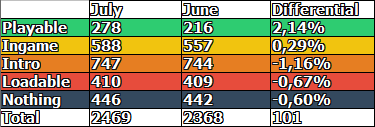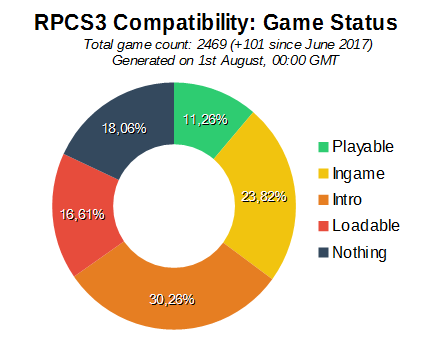Greetings. I am kd-11, graphics developer for rpcs3 with a mid-month update on latest developments on the emulator.
As many are already aware, a lot has been going on lately with the new changes to the RSX (the PS3 GPU) emulation, dubbed vertex rewrite. This change moves a lot of vertex processing duties from the CPU to the GPU where they rightly belong and as a result there are massive performance gains especially with OpenGL but also with Vulkan in geometry heavy scenes.
Background
Most if not all users are probably aware by now, but dedicated graphics cards exist on a physically separate board. This means data has to be moved to and from it through the PCI-E bus which is quite fast. However, while it is high bandwidth, it is also high-latency. That means you cannot just send something over there and expect to get it immediately available for the next draw call. Instead, the GPU has to wait for data to be prepared and then signaled that data is ready for processing before drawing begins. This is a general simplification, but it helps illustrate the point. The RSX on the PS3 doesn’t work the same way however. It has near direct access to the XDR main memory on a PS3 and ‘pulls’ data directly from main memory as though it were local memory. It is somewhat similar to integrated graphics memory in this case. That means data is not ‘pre-packaged’ for transport to the PS3 GPU since the memory is virtually unified from the point of view of the RSX. When using Vulkan, drawing is not scheduled until the whole command queue is flushed mitigating the impact of transfer since data will likely have been uploaded beforehand, but for OpenGL this was a big bottleneck.
The second issue was that the emulator was doing a lot of computation on the CPU on how to read vertex data from main memory, essentially pre-packaging the data into formats easy for GPUs to use. This is a very slow process and also very memory intensive (hence the ‘Working buffer not enough’ crashes). Enabling a debug overlay with the old method shows some games taking up to 200ms to prepare vertex data for one frame (Hellboy: The Science of Evil). This is obviously not optimal. The impact could be lowered by using more threads for vertex processing, but with the number of threads already needed to emulate the PS3’s multi-core processor, it was a problem. Spawning 8+ vertex processing threads reduced the time spent processing vertices, but cost other threads to starve and performance would drop significantly. The solution was to shift the work to the GPU instead and not touch it in any way. Just copy the data block and the GPU could fetch the data it needed for itself, mimicking the behaviour of the real hardware.
Continue reading Rewriting Vertex Processing for Massive Performance Gains

